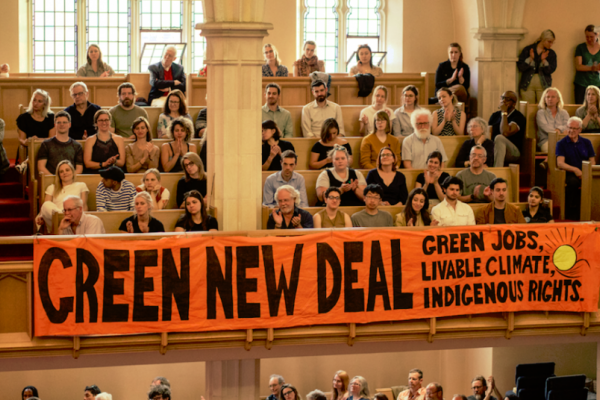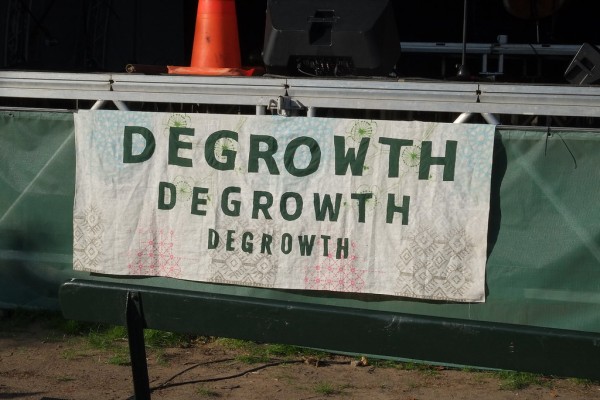Vanishing point

A Dinosaur named Sue. Photo by Oscar Shen/Flickr.
More than half of all the wild animals on Earth have been annihilated within my lifetime. The number of mammals, birds, reptiles, amphibians and fish has declined 52 percent in the last 40 years.
This death notice was delivered by the World Wildlife Fund in its 2014 Living Planet Report. The animals haven’t mysteriously vanished: the conditions of their existence were destroyed, directly or indirectly, by human action. A substantial part of this great decimation is not even an incidental outcome of human endeavours. It is the result of hunting and fishing at rates beyond the capacity of species to repopulate. And beyond the devastating consequences of killing for consumption—an endless war, in effect, on countless other species—is the even more disastrous impact of habitat loss and degradation: they are slaughtered, poisoned and rendered homeless by our agricultural expansion, our swelling cities and our incessant quest for energy.
Since the 1970s, terrestrial species and marine species populations have each declined 39 percent, while freshwater species populations have declined 76 percent. This is a catastrophe of staggering proportions, even from the vantage point solely of enlightened self-interest. To cite the dry observation of the scientists who published “Defaunation in the Anthropocene” in the journal Science: “animal declines will cascade onto ecosystem functioning and human well-being.” Or in the neoliberal-inflected language of the WWF report itself, we are squandering our “natural capital.” But there is also another perspective: that this is a tragedy, not only or even primarily because it may ultimately harm human survival but because other species matter for their own sake; they possess intrinsic worth beyond their instrumental or aesthetic value for us.
For too many on the political Left, concern for the experience or fate of non-human animals for their own sake rather than exclusively as an expression of enlightened self-interest in preserving natural resources for human exploitation is just so much middle-class muddle-headedness. Compassion is cast as a zero-sum game: an ounce of pity for a tortured lab animal or a species rendered homeless by the felling of a forest detracts from our capacity to stand with suffering humanity. For others, the very idea of regarding humankind as responsible for the progressive obliteration of other species makes an abstraction of humanity, equating the dominators and the dominated (as if ideas about sexism and racism aren’t vulnerable to a similar line of criticism).
The fact is that in relation to animals, humans—whatever their class position—are incontrovertibly dominant, and the claims and struggles of other species, whether manifested individually or collectively, are impotent in the face of our overwhelming might amplified by technology.
The assault on non-human animals in all its myriad forms, from deforestation to habitat fragmentation, from factory farming to pharmaceutical testing, is entwined with capitalist domination of nature, but not coterminous with it. It is true enough that environmental degradation, including the destruction of biodiversity, is hardwired in the character of capitalism with its growth imperative and relentless process of commodification, but it does not follow that the transcendence of capitalism or even the struggle against it will perforce give rise to a new relationship between human and non-human animals, one that is neither exterminational nor exploitive. Like sexism and racism, speciesism should not be conceived as some secondary contradiction that can be resolved “after the revolution.”
As Carl Boggs writes, “Today the global corporate system constitutes an ominous threat to both human and nonhuman life, an exploitative, repressive, and unsustainable juggernaut that treats all living beings as resources within a swollen production and marketing regime, as disposable commodities far removed from any moral status. If within this system the oppression of humans and animals is deeply intertwined…it follows that pursuit of global justice entails new efforts to include groups (in this instance animals) previously excluded from the political calculus.”
Andrea Levy is a coordinating editor for Canadian Dimension and a long standing member if its editorial collective.
This article appeared in the November/December 2014 issue of Canadian Dimension (The New Face of Canadian Militarism).










